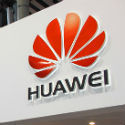Huawei Pledges $2B to Address Security Concerns, Appease the Brits
Addressing security concerns, including those of the UK establishment, will take up to five years and a few billion, says the president of Huawei's carrier business group, as the company fights against a Brit backlash.

Huawei has promised to spend $2 billion over the next five years on making improvements to its software engineering capabilities to address wide-ranging security concerns about its technology, in particular those identified by the UK government.
The pledge came in a recent letter written by Ryan Ding, the president of Huawei's carrier business group, and addressed to the House of Commons Science and Technology Committee -- a copy of which Light Reading has obtained.
It comes after the Huawei Cyber Security Evaluation Centre (HCSEC), a UK security watchdog set up to monitor the Chinese vendor, said last July that various shortcomings in Huawei's engineering processes had exposed new security risks. Last week, the UK's Daily Telegraph newspaper (subscription required) reported that an upcoming report from HCSEC will direct further criticism at Huawei and say earlier concerns have yet to be addressed. (See Huawei Poses Security Threat, Says UK Watchdog.)
The UK is one of several countries weighing restrictions on Huawei Technologies Co. Ltd. because of the risk that Chinese authorities could use its products for spying, but HCSEC had flagged more specific security problems in last year's report.
Among other things, Huawei was criticized for using third-party software that was "not subject to sufficient control." Support for some of that software, HCSEC noted, was due to end in 2020, even though products using it look set to remain in deployment. "There is a significant risk in the UK telecom infrastructure if Huawei and the operators are unable to support these boards long-term," said the report authors.
Ryan acknowledged in his letter that Huawei's software engineering "has room for improvement" but said making changes would be a "complicated and involved process" that could take three to five years. "We hope the UK government can understand this," he wrote.
The company has now been excluded from equipment markets in several countries and seen major customers either pause deployment of its gear or decide to replace it entirely. (See Where Huawei Fears to Tread and How the West Can Hurt Huawei.)
Providing his own assessment of the current market environment for Huawei, Ryan appeared to sugar-coat many of the steps that different governments have taken. In the US, he insisted, there are no legislative restrictions on Huawei's business activities -- simply rules that prevent federal funds being used to buy Huawei products.
But major US service providers have been warned off dealing with either Huawei or smaller Chinese rival ZTE Corp. (Shenzhen: 000063; Hong Kong: 0763) since 2012, when a government report first identified the two companies as a security risk: No major US operator is going to deploy Huawei technology and risk losing federal contracts.
While UK authorities are evidently considering their next move, UK telecom incumbent BT Group plc (NYSE: BT; London: BTA) has been stripping Huawei gear out of its existing mobile core and optical networks and does not plan to buy any 5G core or mobile edge computing products from the Chinese company. (See Huawei Cut Out of BT's Mobile Core, Optical & Edge Plans.)
You're invited to attend Light Reading's Big 5G Event! Formerly the Big Communications Event and 5G North America, Big 5G is where telecom's brightest minds deliver the critical insight needed to piece together the 5G puzzle. We'll see you May 6-8 in Denver -- communications service providers get in free!
Any UK decision to exclude Huawei from the 5G market would have major ramifications for the country's service providers and could even hold up the rollout of 5G services, analysts and operators have warned.
BT's EE mobile subsidiary has already deployed Huawei basestations it expects to use in its future commercial 5G network, Light Reading has learned. Replacing those could be a costly and time-consuming process.
Huawei has also recently become an important supplier to Three UK after landing a 5G deal with the smallest of the country's four mobile network operators last August. Under that agreement, Three will buy 5G radio gear from Huawei rather than Nokia Corp. (NYSE: NOK) and Samsung Electronics Co. Ltd. (Korea: SEC), its 3G and 4G suppliers. (See Nokia, Samsung Miss Out as Three UK Gives 5G Job to Huawei.)
In November, Three UK CEO Dave Dyson said any ban on Huawei could drive up the price of phone services for UK consumers, as telcos pass on rising costs in a less competitive equipment market. "That wouldn't be something the government would want as a consequence and so we need to make sure this is managed in a sensible way," he said. (See Banning Huawei From UK Could Drive Up Consumer Prices, Warns Three CEO.)
— Iain Morris, International Editor, Light Reading
About the Author(s)
You May Also Like




_International_Software_Products.jpeg?width=300&auto=webp&quality=80&disable=upscale)







